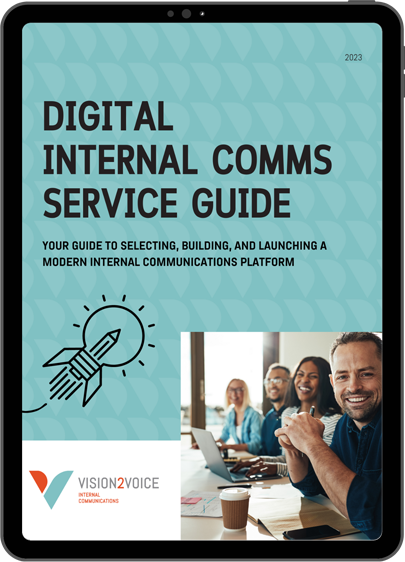Sacha Jackman on the 2023 Edelman Trust Barometer
At 6:30 this morning, I woke up and listened to the 2023 Edelman Trust Barometer Launch with a distinguished panel including Lorenzo Simonelli, Rt Hon. Helen Clark, David Miliband, Hanneke Faber, Jane Sun, and Yoshito Hori moderated by Thorold Barker. The event kicked off Day 3 of the World Economic Forum’s Annual Meeting in Davos, Switzerland.
Richard Edelman, CEO of Edelman introduced this year’s barometer by saying that people expected 2022 to be “the return to normal.” Instead, local and global inequalities grew, Russia invaded Ukraine, shutdowns continued in China, and a recession loomed large.
The session started with a disheartening headline: Navigating a Polarized World. And Edelman confirmed what most of us who watch the news already sensed – a lack of trust deepened divisions in 2022, which have manifested into personal fears about the future – from job security to the future of our planet.
In the 2023 report, Edelman found four main forces that lead to polarization:
- Economic performance expectations: economic optimism has collapsed, and people have less faith in the future.
- Institutional imbalances: businesses are expected to fill in the ethical gaps that the government is failing to reach.
- Mass class divide: inflation is no longer just an issue in developing regions.
- Battling for truth: the media is not trusted, but the company newsletter is.
Although these forces are unnerving, it’s nothing internal communications professionals don’t already know. But the Edelman Trust Barometer allows us to better understand how people feel. This understanding is the starting point for finding solutions and hope – if you choose to see it. Japanese business leader and author Yoshito Hori pointed out that with a mixture of candid, smart and timely communication, we can battle the crisis of trust. It was then that, as a young internal communications professional, I began to regain my hope for the future.
“Action Drives Trust” ~ Richard Edelman
There are five takeaways from the panel discussion. I’ve provided my perspective on how business leaders and the internal communications professionals who support them can navigate a polarized world and bring back the trust we need to address the challenges ahead.
#1. It is possible to build back trust
Trust is difficult to earn but is easily broken. This hard truth doesn’t mean we can’t build back trust.
Respecting, honouring, and understanding the importance of humanity in people builds enormous amounts of trust. More open, honest, and authentic internal communication is a great place to start.
Let’s not forget the role of leaders and their internal communications teams in the diversity, equality and inclusion work that must be pushed down from top leadership and engrained into organizational culture. On this note, Richard Edelman reminded us that religion needs to be included in DEI discussions just as equally as gender and race.
Action drives trust. Authenticity drives trust. Being human drives trust.
#2. Get into the solutions business
If it seems like CEOs hold a sense of responsibility, it’s because they do. A CEO’s role has changed in the past few years as it has become clear that employees want their leader to take a stand and work towards solutions.
For internal communications professionals hoping not to have to respond to societal issues, the Edelman Trust Barometer found that people expect CEOs to act on issues like the treatment of employees, climate change and discrimination.
This includes expectations related to Environmental Social Governance (ESG), where organizations are now looking at risks and defining new success measures that include helping tackle issues such as climate change, waste, and equity and inclusion. The role of internal communications professionals in this work is still being defined. Still, we are already working with organizations to help them to build powerful ESG programs through internal communications.
#3. Recentering
The panel discussed the idea that the left and right must be rebooted. The political polarization has become exasperating because we, as humans, find it difficult to disagree nicely. The Edelman Trust Barometer found that this polarization impacts the workplace, with only 20% of respondents saying they would be willing to have someone who disagreed with them as a coworker.
Through psychological safety, we can make it safe to have difficult conversations in the workplace. Organizations that build an environment where candour, learning, and differences are embraced can encourage respect for opposing views and choices.
We can also recenter by using shared stories, values, and experiences to discover what we have in common and build connections with others. We love this video that shows how we can find a connection in people who, on the surface, may seem different.
#4. Tell difficult truths
How do we tell unpleasant truths? Whether it is an airline that bungles a crisis and leaves passengers stranded, a company where some leaders have been complicit in the face of wrongdoing, or a decision to lay off a large percentage of your workforce, the difficult truth must be shared – internally and externally.
Our role as internal communications professionals is to support truth-telling. In 2022, we saw many organizations get it wrong (the CEO crying on LinkedIn because it was so hard for him to lay off his staff comes to mind!). Trust in our organizations, and each other is built when we own our mistakes and take responsibility for our actions. This isn’t easy – it takes courage and humility to own up to our mistakes and admit we are wrong.
The flip side is that we need to be ready to listen. We need to hear the difficult truth from others rather than bury our heads in the sand. We find leaders spend very little time listening to the difficult truth and the reality of the employee experience, which drives disconnection and division.
#5. Foster resilience
There is an emerging consensus about impact. Our impact on the earth, how we treat one another, and the impact that businesses have on our financial, physical, emotional and social well-being. The panel shared that we must be humble and optimistic when discussing the future. In our volatile, uncertain, complex and ambiguous (VUCA) world, supporting employees with strategies that support personal and organizational resilience is vital. These strategies include articulating the organization’s purpose, supporting organizational learning, and helping employees adapt to skills training and development.
Understanding the trust deficiency made me reflect deeply on a sunny January morning in London. I encourage you to read the 2023 Edelman Trust Barometer and think about how, as internal communication professional in your organization, you can use communication as a force for good – to tackle the forces that lead to polarization and end the trust crisis.
“We have to get hope back in the system” ~ Richard Edelman







